Javed Hassan [Irrfan Khan] is a noted filmmaker, often mobbed by philographists. His wife Maya [Rokeya Prachy] is a lecturer.
With his two children – Saberi [Nusrat Imrose Tisha] and Ahir [Rashad Hossain] – Javed is purportedly in a happy space.
All hell breaks loose when Javed falls for Nitu [Parno Mittra], Saberi’s childhood friend and moves out. Might sound too mundane !
Well, director Mostafa Sarwar Farooki deals with this tale of separation and its subsequent aftermath with his unique style that really makes you sit up and take notice.
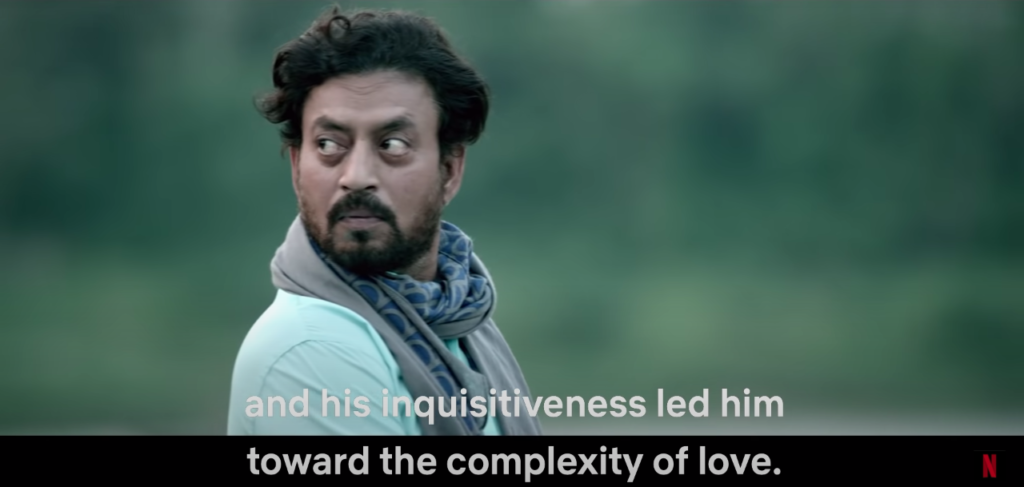
Still from Doob: No Bed of RosesTrust Farooki and he never ever veers into a single risqué moment. The entire drama oscillates among the four key players – Javed, Nitu, Maya and Saberi – and their turbulent emotional journey that’s never borders on melodrama.
Farooki hardly ever hints at the exact point that sparks the rift in Javed’s relationship with Maya, neither is Nitu painted as the ‘other woman’, though Saberi accuses her of nurturing childhood jealousy and rivalry.
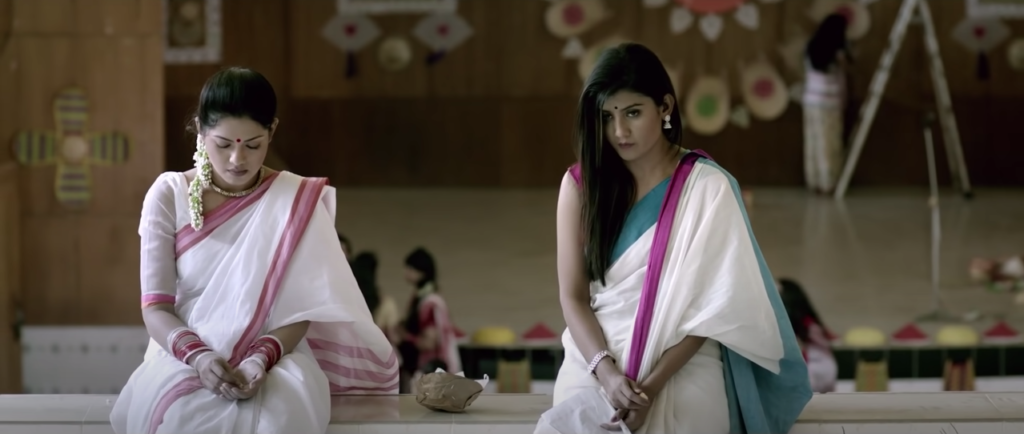
Still from Doob: No Bed of RosesIn this entire ‘unmelodramatic’ narrative, Farooki retains everything simple and to the point. The languid pace perfectly compliments the inner turmoils and conflicts, its key characters are thrown into.
Javed Hassan comes across as a complex character who is both compelling and extremely vulnerable at times. And Irrfan Khan makes Javed’s losses, yearnings, despairs so palpable that you wonder why he had to leave us in such a hurry !!
I just can’t imagine any other actor in Javed’s shoes other than Irrfan [Khan].
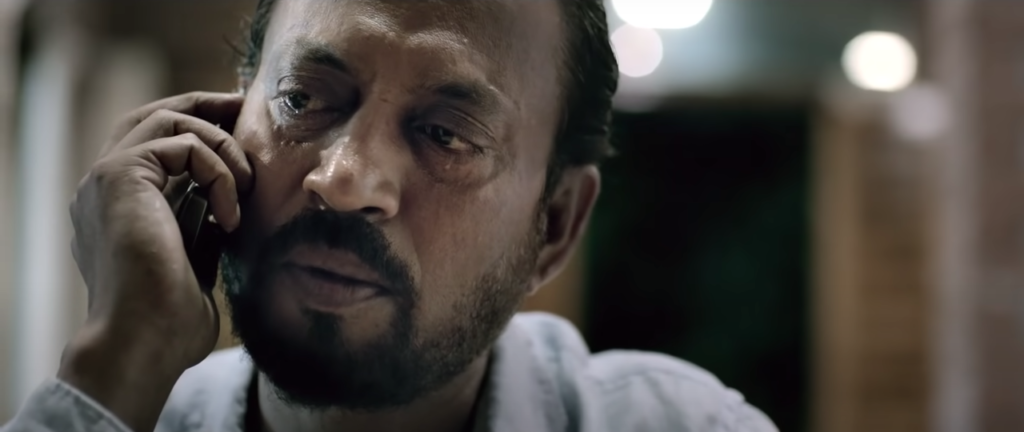
Still from Doob: No Bed of RosesBut what Farooki really strikes gold at is with his unusual shot compositions and impressive sound design [Dipankar Chaki and Ripan Nath].
The non-linear narrative is presented as a series of tableau where characters enter and exit the frame. Considerable amount of off-screen space has been created to fruitful effects.
Farooki wants us to not only ‘see‘ but also ‘listen to‘ when we are not allowed to see ! Cinema isn’t called audio – visual medium for no reason.
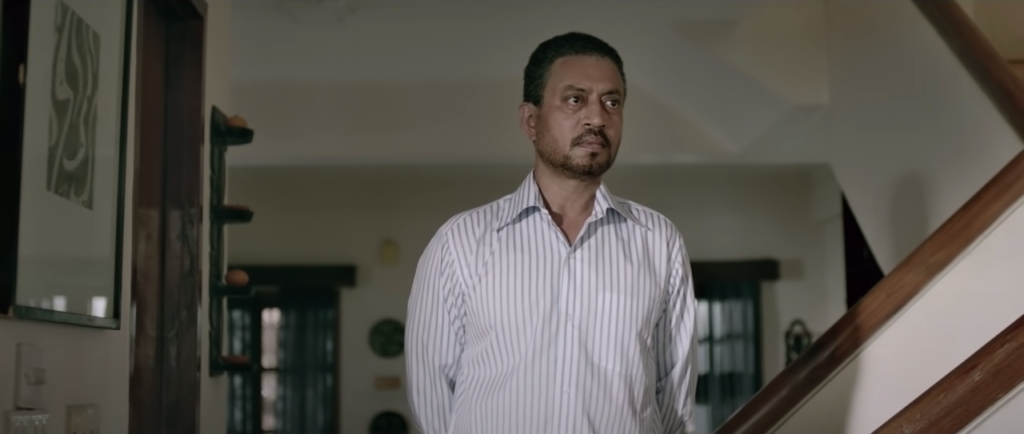
Still from Doob: No Bed of RosesI am tempted to cite a few sequences –
An admirer who comes to work under Javed is unceremoniously thrown out. A few moments later, Javed draws him in and asks to log into his Facebook account. We see a cropped image of Javed and his fan as his profile picture. Javed lambasts him for editing out his wife’s image from the actual photo. This single sequence is enough to provide new dimension to Javed’s complex character that strictly maintains the private /public dichotomy. The same issue recurs in another sequence where we see Javed and Nitu at a live chat show.
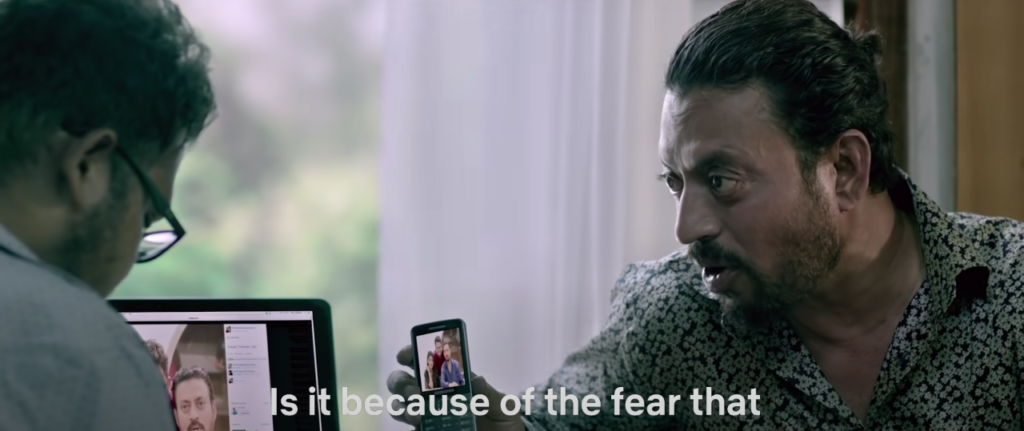
Still from Doob: No Bed of RosesJaved’s death is brilliantly established !
We see Javed and Nitu in a soft embrace. As the camera starts to pan left, the soundtrack is abuzz with chants from the holy koran.
Next we see Javed’s brother and with other members in the next room. Camera again pans back to its former position where we see Nitu, crying inconsolably holding her child.
In the very next scene, we see Maya breaking the news of Javed’s death to her children. Camera is static. A work professional is seen sitting in the drawing room. Maya goes out of frame into the kitchen and informs them. After a brief pause, Saberi requests her mother to make a different variety of poached egg with mushroom. Maya enters the frame and goes to attend the professional (both remain out of frame) to discuss about her impending coaching class. What all remains is the empty space.
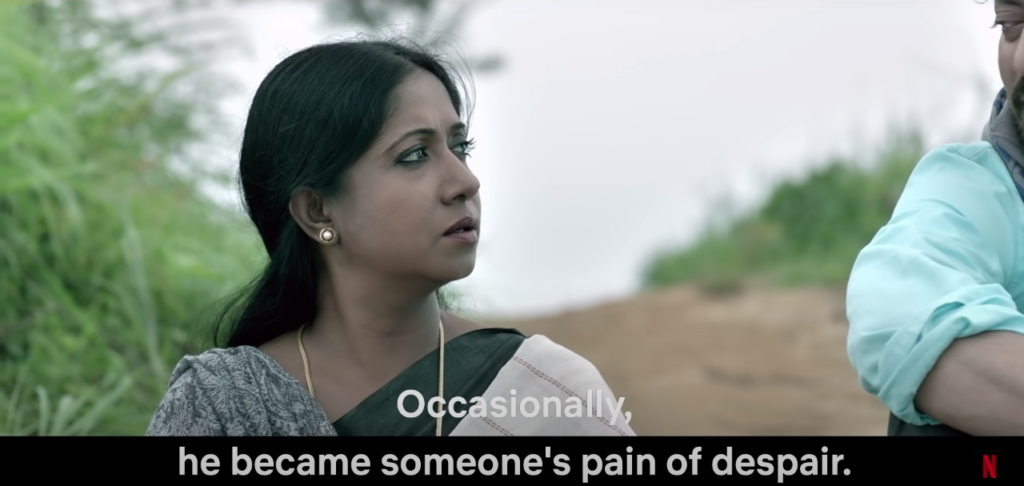
Still from Doob: No Bed of RosesSo Doob: No Bed of Roses, chiefly becomes a study of characters in isolation, more than its plot, that’s exquisitely photographed by Sheikh Rajibul Isla.
Special mention for the haunting Tagore song Purano sei diner kotha, used as instrumental by music composer Pavel Arin.
Doob: No Bed of Roses is streaming on Netflix.
NOTE: THE VIEWS AND OPINION EXPRESSED IN THIS ARTICLE ARE THOSE OF THE AUTHOR.